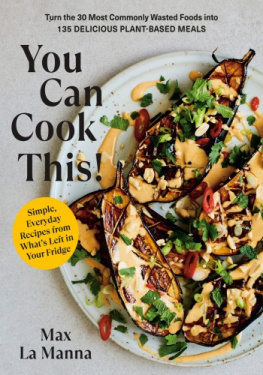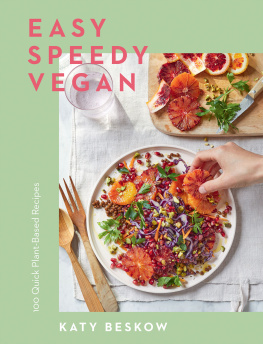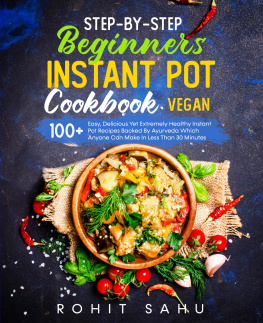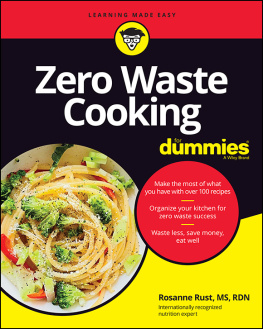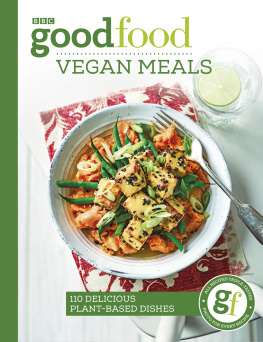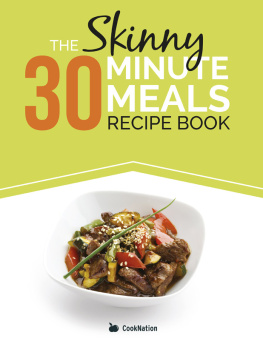Copyright 2023 by Max La Manna
Photos copyright 2023 by Lizzie Mayson
Published in the United States by Rodale Books, an imprint of Random House, a division of Penguin Random House LLC, New York.
Originally published in the United Kingdom in 2023 by Ebury Press, an imprint of Ebury Publishing. Ebury Press is part of the Penguin Random House group of companies.
RODALE and the Plant colophon are registered trademarks of Penguin Random House LLC.
rodalebooks.com
randomhousebooks.com
Library of Congress Control Number: 2022948382
ISBN9780593578728
Ebook ISBN9780593578735
Print book design by Evi-O.Studio | Evi O. & Emi Chiba
Cover photograph by Lizzie Mayson
Ebook Production Manager: Eric Sailer
rhid_prh_6.0_143035247_c0_r0
Carrot
Parsnip
Potato
Beet
Rice
Mixed Grains
Pasta
Bread
Tomato
Eggplant
Pepper
Pumpkin
Squash
Cucumber
Tofu
Chickpeas
Beans
Cauliflower
Broccoli
Herbs
Mushrooms
Onion
Garlic
Milk
Yogurt
Apple
Banana
Berries
Citrus
_143035247_
Introduction
If you ask me what I love the most, I would say to you without hesitationfood (really sorry to my wife; she knows this already, and shes a close second). I have never been shy to talk about food or my passion for wasting less of it.
First and foremost, my love of food means that I simply enjoy cooking and eating it, and I hate seeing it wasted. However, I grew up in the US, which is without a doubt one of the most wasteful countries in the world, and its throw-away food culture is no exception.
Its not just pre-packaged fast and cheap food that is treated as disposable: the same ethos is found in high-end restaurants, too. During my time trying to make it as an actor, I worked at an array of restaurants in Los Angeles and New York City, including one with a Michelin star. Food waste was rife at all of them. It pained me.
Once I admitted defeat against my acting aspirations, I turned my focus to championing the food we already have in our fridges and cupboards, and finding exciting new ways to cook the meals we crave the most. I did this in person by hosting dinners for friends, corporate events, and demonstrations, and then later on a digital scale, creating content that is accessible and easy to follow for as many people as possible.
The recipes Ive created are here to inspire, excite, and transform the way you cook, store, and save food. You may be someone who cooks every day, or perhaps youre someone who wants to learn or cook more; whoever you are, whatever your motivation, this book is a practical guide, showing you how to develop and cook delicious, simple dishes with the food you already have in your kitchen.
You Can Cook This! and you probably should! Get in the kitchen right now, explore your fridge and cupboards, uncover the neglected and forgotten ingredientsas long as its safe to eat and there isnt mold growing on itand cook your way through these pages. Youll see how effortless it is to create meals using what you already have, and whats more, theyll save you money and time.
Why I Wrote This Cookbook
Before we start cooking, I need to say a BIG thank-you to those of you who follow me on social media. I asked you for ideas and inspiration; you may recall the question boxes on my Instagram stories that said: Tell me the food you waste the most, and from this simple question, I had tens of thousands of responses. Collecting the data, Ive narrowed it down to the top 30 most-wasted ingredients in your homes. I dont think youre going to be surprised by the focus-led ingredients in this cookbookyoull already be familiar with most of them. However, I think you may be encouraged by how easy it is to cook these recipes and waste less food.
How This Cookbook Works
Its easier than ever to cook mouth-watering dishes for yourself and your loved ones. This is how it works: all you need is to find an ingredient you want to cook, head to the chapter with said ingredient, and there youll find delicious, easy-to-cook recipes to choose from. Youll find further inspiration in the Occasion Index ( )!
Theres a disproportionate amount of pressure placed on personal responsibility to create less waste in the world. The majority of this pressure should be redirected and placed on the worlds top 100 most-polluting corporationswho are responsible for 71 percent of greenhouse gas emissions. Not all individuals have the privilege, time, and access to forgo plastic packaging and cook every meal from scratch. With that said, I have firsthand experience of how individual changewith the planet in mindcan benefit our mental health and sense of purpose and community. The more of us aboard this ship, the more positive change we can make.
Enjoy cooking, sharing, and eating delicious food.
Max
Everyone Is Welcome at the Table
This cookbook is a celebration of food. No matter what your dietary preference is. Everyone is welcome to the table. No discrimination, no judgment. What I love most about how I cook is that everyone can eat it (depending on dietary restrictions, of course). Plant-based equivalents of butter and popular cheeses such as cheddar, feta, mozzarella, and parmesan have become easier to find in supermarkets, along with an array of non-dairy milks, yogurts, and creams. Feel free to experiment, or use dairy products if you prefer. All of the recipes in this book have been tested with plant-based ingredients, as thats how I like to eat.
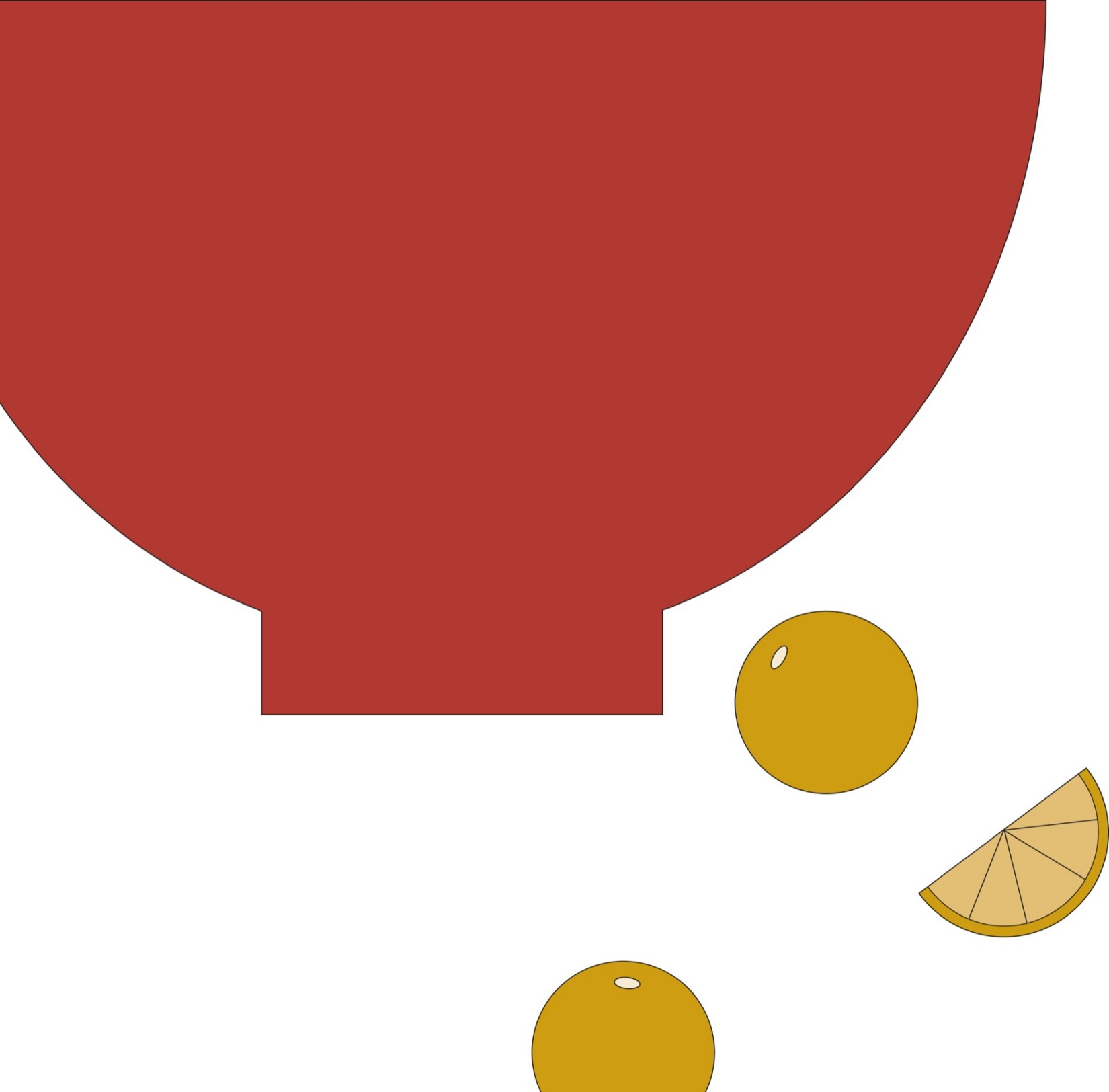
In the Kitchen
You have found yourselfin the kitchen. For me, the kitchen has always taken center stage. When I was growing up, it was the hub of our home and now, as an adult, its where I spend most of my time. If Im ever at a party, you can always find me in the kitchen. They say we sleep for one-third of our lives; I probably spend more than half my waking life in the kitchen (as I write this, I am in my kitchen).
The kitchen stores food and produces meals. It can be a well-oiled machine or it can be chaos. My kitchen is also my office, so I like to keep it in tip-top shape and clutter-free. What Im talking about here is how you store your food. Quite simply, it can make or break your meals, and your bank account.
Im often asked on social media and in person what easy steps we can all take to waste less food. Here are some actions to take to waste a little less food at home:
Make a list before shopping
Do a quick inventory of your fridge and cupboard and see which foods you already have on hand.
Cook
I know it seems obvious, but 40 percent of food waste is coming from unused produce in the home. Cook the food you already have, find a recipe (perhaps in this book), and start cooking.
Save your leftovers
Keep them in a sealed container either in your fridge or freezer and eat them the next day or later in the week.
Store food properly (see )
Use technology and donate food; there are apps and charities where you can donate food or pick up food from others in your community.
Compost
Food doesnt belong in landfills. Did you know it takes 25 years for a head of lettuce to decompose in a landfill? Whereas if composted properly it would take 3090 days and provide rich nutrients to the soil. Which of these sounds better to you? If you dont already have a food waste collection, either build a compost heap at home or contact your local government and find out about food waste recycling.
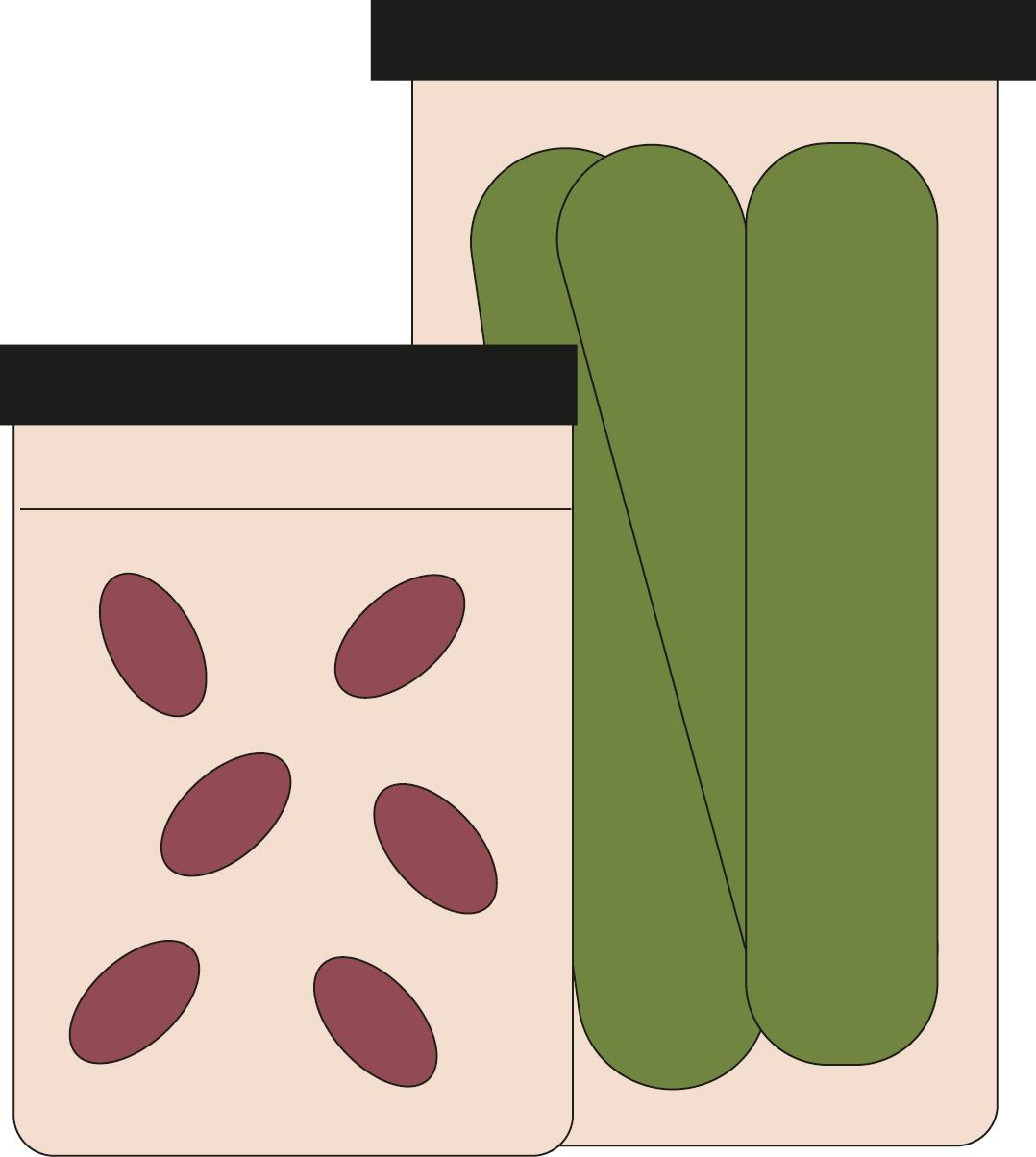 Next page
Next page
